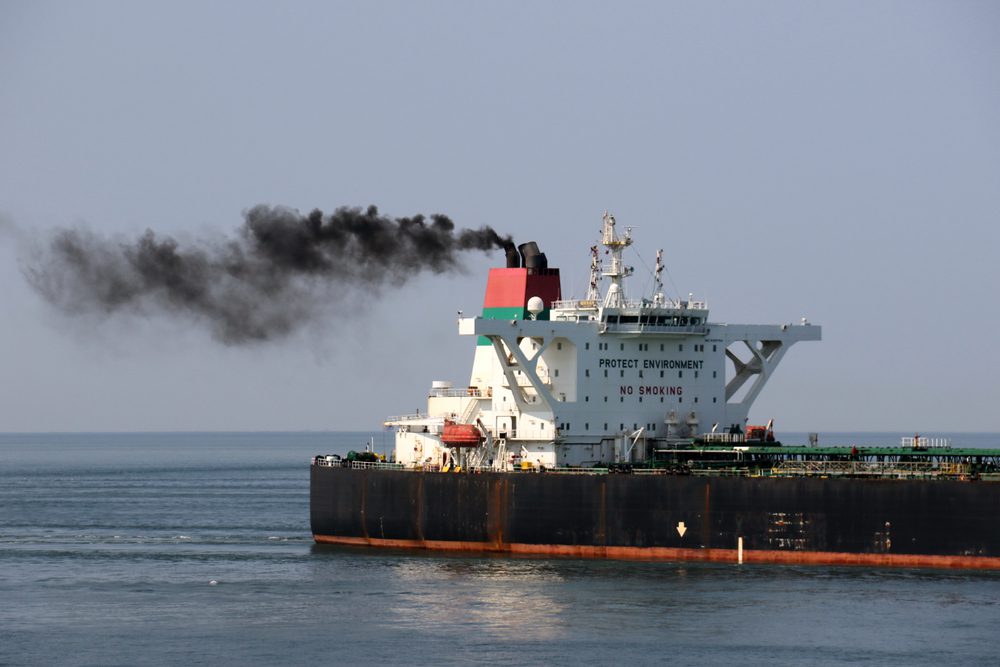MartinLueke / Shutterstock.com
 By Ahmad Ghaddar and Julia Payne LONDON, Aug 16 (Reuters) – Margins for European high sulphur fuel oil (HSFO), used to power ships, sank this week as preparations for a global shift to cleaner maritime fuel next year start to weigh on prices.
By Ahmad Ghaddar and Julia Payne LONDON, Aug 16 (Reuters) – Margins for European high sulphur fuel oil (HSFO), used to power ships, sank this week as preparations for a global shift to cleaner maritime fuel next year start to weigh on prices.
High sulphur fuel oil is one of the dirtiest and cheapest products to come out of a refinery. It is used in power generation but has been the fuel of choice in global shipping for decades.
But most demand will evaporate after new rules from the International Maritime Organisation (IMO) which aim to cut pollution come into effect from January 1. More shipping fuel rules will come in the future to tackle climate change.
The approaching shift is already having an impact on the markets. Barge margins <hfo-ara, url-nwe-e=””>, for example, fell to minus $15.7 this week, a more than 5-year low.</hfo-ara,>
A European fuel oil trader said that this week’s sell-off was “definitely IMO-related”.
The IMO has lowered the cap on sulphur content to a maximum 0.5% sulphur, a reduction of 3.5%.
Only ships with expensive kits that clean sulphur, known as scrubbers, will be allowed to continue burning HSFO.
The International Energy Agency estimates that high-sulphur fuel oil demand will fall by 60% to around 1.4 million bpd in 2020.
“The storage guys are getting ready as you need to refit the tanks to make sure you have room for compliant fuels like very low-sulphur fuel oil (VLSFO). There’s no room for HSFO,” the trader said.
Storage tanks at the world’s biggest bunkering hub, Singapore, have become so full with the cleaner fuel that at the end of July, traders had booked at least 10 Very Large Crude Carriers to store more product offshore.
In the United Arab Emirates, Germany’s Uniper revamped its Fujairah refinery earlier this year to produce fuel oil with a content of 0.1% to 0.5% sulphur.
Fuel oil stocks in the main hubs of ARA, Singapore and Fujairah fell by 3.9 million barrels week-on-week according to the most recent data, according to consultancy FGE.
“We’re starting to see de-stocking of HSFO ahead of IMO,” an fuel oil-focused industry source said.
Analysts say the fall in stocks also coincided with signs of a possible global recession as the China-U.S. trade war drags on. A slowdown in global trading activity hits demand for fuel oil because it is primarily used in the shipping industry.
“We had expected July to be the peak for HSFO markets but the violent sell-off this week was likely triggered by the escalation in the U.S.-China trade war, which led to a drop in oil prices and renewed fears of a recession as further tariffs would harm trade and demand for bunkering fuel,” consultancy Energy Aspects said.
“With HSFO cracks falling off a cliff, we have now started to see considerable pressure on simple refining margins,” Vienna-based consultancy JBC Energy said, adding that strong diesel margins were keeping overall margins for refineries afloat.
Refineries that do not have high-tech kits like cokers that can convert fuel oil into higher value products are known as simple refineries. These usually suffer more than their complex counterparts when fuel oil profits drop.
“With markets now just two months away from the first decisive shift towards IMO 2020 compliant fuel, HSFO cracks will get progressively weaker, but those who still need HSFO will have to pay up through higher differentials,” Energy Aspects said.
The move is also a correction after a bounce caused by Saudi Arabia scooping up big volumes of HSFO from Europe for power stations to meet peak summer demand, traders said. This was met in part through crude-for-fuel swaps such as with Poland and Greece.
Also, U.S. sanctions on Iran and Venezuela coupled with OPEC cuts has tightened availabilities of sour crudes that have high fuel oil yields.
(Additional reporting by Ron Bousso and Dmitry Zhdannikov. Editing by Jane Merriman)
(c) Copyright Thomson Reuters 2019.

 Join The Club
Join The Club











